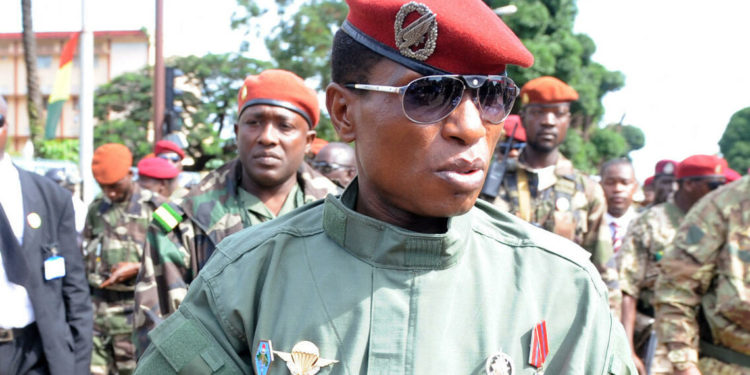By Kemo Cham
Guinea’s former junta leader, Moussa Dadis Camara, convicted for crimes against human, has received a presidential pardon.
Dadis, as he is popularly known, was pardoned by military head of state General Mamadi Doumbouya on health grounds, according to a presidential decree announced on Friday, march 28, 2025.
There was disclosure of what health problems he faced.
Dadis ruled Guinea from December 23rd, 2008 to December 3rd, 2009; he was convicted in 2024 for his role in the 2009 stadium massacre in the capital Conakry. Over 157 people died in the incident that occurred as security forces responded to a pro-democracy rally.
Dadis seized power in a coup shortly after the death of long-term President Lansana Conteh.
On 28 September 2009, tens of thousands of Guineans protested against his suspected plan to contest the planned presidential election. Security forces opened fire on the crowd, leading to the deaths and raping of over 100 women and girls. The incident resulted in a stampede, which apparently contributed to high fatalities.
After almost 12 months in office, he was shot in the head by a former bodyguard of his, Aboubacar ‘Toumba’ Diakité, in what was an attempted assassination.
Dadis was flown to Morocco where he received treatment, before moving to Burkina Faso where he lived in exile for 12 years, until his voluntary return to Conakry in 2022 to face accusations of his involvement in the massacres. He had always insisted that he was innocent.
Dadis was one of eleven men tried on charges that included murder, kidnapping, sexual violence and torture. After nearly two years’ trial that started on September 28, 2022, the former junta leader and seven other co-accused were found guilty on July 31, 2024. He was sentenced to a 20-year jail term, while the others, including Toumba and Moussa Tiegboro Camara, received prison sentences ranging from one year to life in prison.
The move has been received with mixed reactions among Guineans both at home and abroad. While some consider it a gesture of reconciliation, others see it as a slap on the faces of families of victims of the stadium massacre.
The move also comes about a week after the current junta leadership announced a plan to pay compensation to victims of the massacre.
There have also been calls for the gesture to be extended to the other convicts for the massacre.
Some victims and their lawyers however condemned the move outright.
One of the vocal victims’ lawyers, Alpha Amadou Bah, is quoted by Guinee News, an online Guinean news platform, as describing it as a “slap in the face for justice” and a “dangerous signal sent to perpetrators of abuses.”
Doumbouya’s action also comes as an appeal process was about to start. Some critics say this makes the move illegal.






















